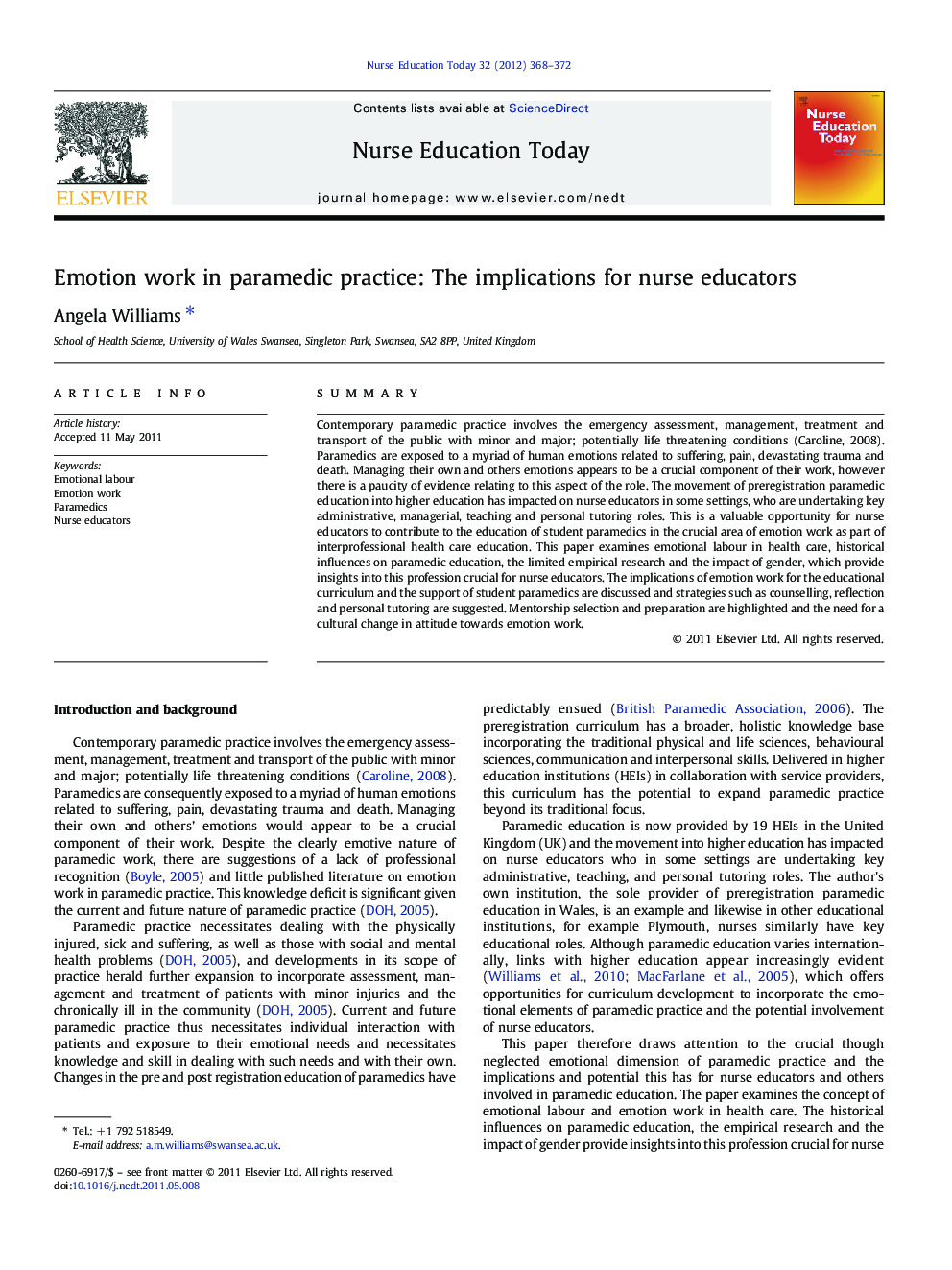| Article ID | Journal | Published Year | Pages | File Type |
|---|---|---|---|---|
| 368756 | Nurse Education Today | 2012 | 5 Pages |
SummaryContemporary paramedic practice involves the emergency assessment, management, treatment and transport of the public with minor and major; potentially life threatening conditions (Caroline, 2008). Paramedics are exposed to a myriad of human emotions related to suffering, pain, devastating trauma and death. Managing their own and others emotions appears to be a crucial component of their work, however there is a paucity of evidence relating to this aspect of the role. The movement of preregistration paramedic education into higher education has impacted on nurse educators in some settings, who are undertaking key administrative, managerial, teaching and personal tutoring roles. This is a valuable opportunity for nurse educators to contribute to the education of student paramedics in the crucial area of emotion work as part of interprofessional health care education. This paper examines emotional labour in health care, historical influences on paramedic education, the limited empirical research and the impact of gender, which provide insights into this profession crucial for nurse educators. The implications of emotion work for the educational curriculum and the support of student paramedics are discussed and strategies such as counselling, reflection and personal tutoring are suggested. Mentorship selection and preparation are highlighted and the need for a cultural change in attitude towards emotion work.
